EGADE Action Week 2024: A week for embracing sustainability
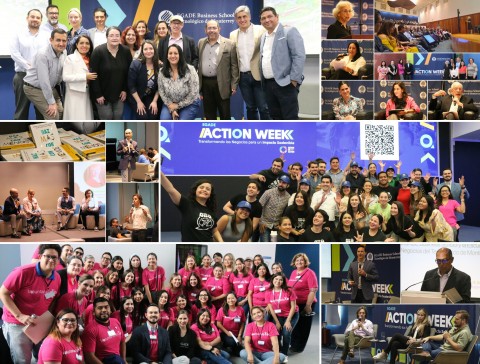
This second edition's activities took place from May 13 to 17 and included book presentations, conferences, and discussion panels.
By JOSÉ ÁNGEL DE LA PAZ | EGADE BUSINESS SCHOOL
The second edition of EGADE Action Week, organized by EGADE Business School—Tecnológico de Monterrey, was a resounding success. It fulfilled its purpose of inspiring the community to embrace sustainability as a fundamental pillar in the development of businesses that make a positive impact.
The activities, which took place from May 13 to 17, targeted EGADE Business School students, graduates, and professors, as well as leaders and members of various sectors and industries.
FRUGAL INNOVATION
The week started with the presentation of the book Haz más con menos: Los 6 principios de innovación frugal (Do More With Less: The 6 Principles of Frugal Innovation), co-written by Cristian Granados and Felipe Symmes, EGADE Business School professors.
The academics highlighted how frugal innovation enables organizations to develop high-quality, sustainable, and affordable solutions.
PHILANTHROPIC LEADERSHIP
Melissa Berman, founding president and former CEO of Rockefeller Philanthropy Advisors, delivered the keynote address “Philanthropic leadership for the 21st century,” underscoring the need to build trust as one of the main challenges for philanthropy worldwide.
The panel “New trends in strategic social-impact philanthropy in Latin America” was also presented, with the participation of Lorena Guillé-Laris, director of FEMSA Foundation; Magdalena Aninat, director of the Enterprise and Society Center at the Universidad Adolfo Ibáñez (UAI) Business School); Rodrigo Villar, associate researcher at the UAI CIESC and CEFIS; and Luciana Manfredi, professor at EGADE Business School.
SUSTAINABLE FUTURES
The presentation of the VIVA Idea Schmidheiny Chair in Sustainable Futures at EGADE Business School was yet another highlight of EGADE Action Week.
Urs Jäger, CEO of VIVA Idea, emphasized the urgency of integrating sustainable approaches into the education of future business leaders and proposed a model that combines high-level research with practical applications.
The event included a panel of experts, including Felipe Symmes, professor and leader of the VIVA Idea Schmidheiny Chair in Sustainable Futures at EGADE Business School; Alejandra Rivero, Director of Sustainability and Social Responsibility at Banregio; and Gabriel Rivera, CEO of Altitud.
ABUNDANCE CAPITALISM
Boyd Cohen, EGADE Business School professor, presented his book Abundance Capitalism.
The scholar explained that the central concept of his book is based on the convergence of exponential technologies with sustainable and regenerative business practices, seeking to achieve inclusive prosperity for people and the planet.
ACTION BREAKS
Throughout the week, the students experienced Action Breaks during their class recesses at the EGADE Business School sites in Monterrey, Santa Fe, Guadalajara, and Querétaro.
These activities were designed to encourage reflection on sustainable development, and they were conducted in collaboration with experts from Dilo en señas, Maoli, Industria Circular MX, Archer Integrated Risk Management, and Rincón Verde.
VOLUNTEER DAY
In an environment of learning and collaboration, the EGADE Volunteer Day welcomed over 60 students from the technical high school CBTIS 99.
More than 50 women and men volunteers from the EGADE community, including professors, collaborators, and students, devoted their time to engaging young people in a series of activities and challenges focused on the development of leadership and teamwork skills, reinforcing the school’s commitment to social responsibility and education.
CSO PROFESSIONALIZATION
EGADE Action Week also saw the launch of the second edition of the Program for the Professionalization of Civil Society Organizations (CSOs), organized in collaboration with the Nuevo León State Ministry of Equality and Inclusion.
This generation is made up of 28 leaders from 18 organizations that serve different sectors, such as social welfare, health, education, and the environment.
EGADE Action Week 2024 concluded with a renewed sense of purpose and a clear vision of how education and collaboration can serve as catalysts for positive change. This demonstrated the vital role of EGADE Business School in preparing future leaders committed to sustainability and innovation.
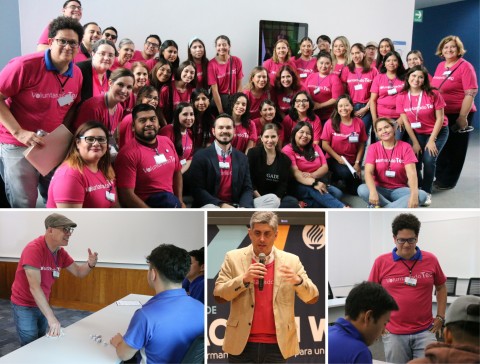
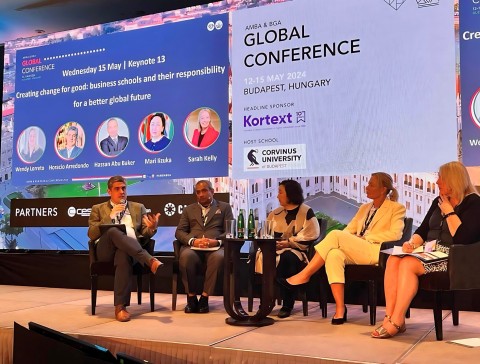
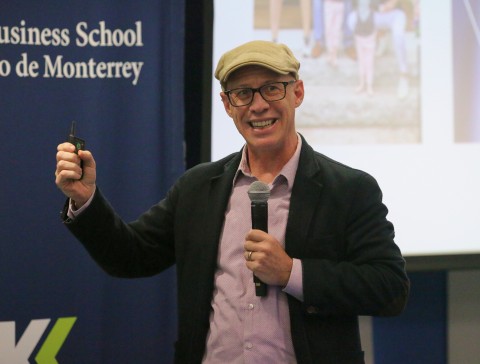
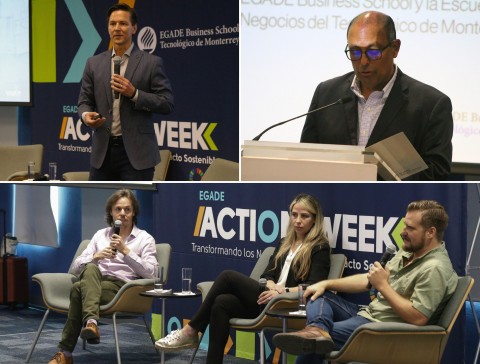
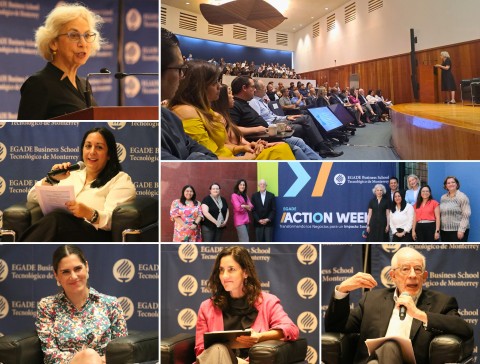
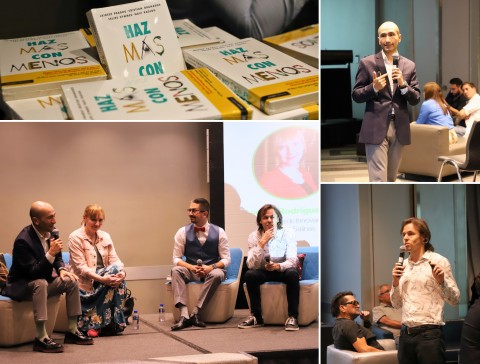
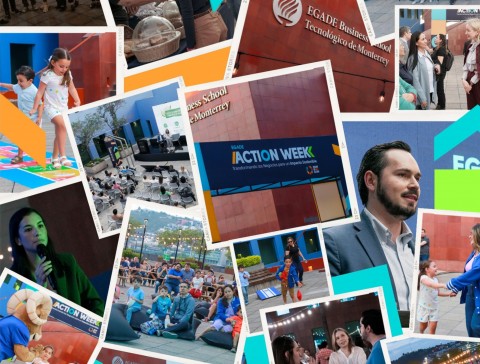
_0.png)